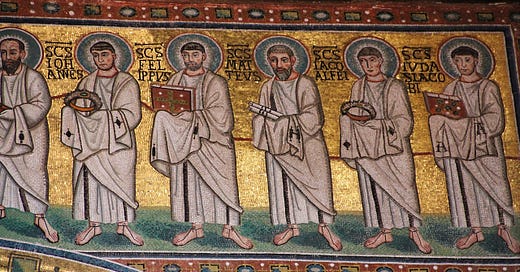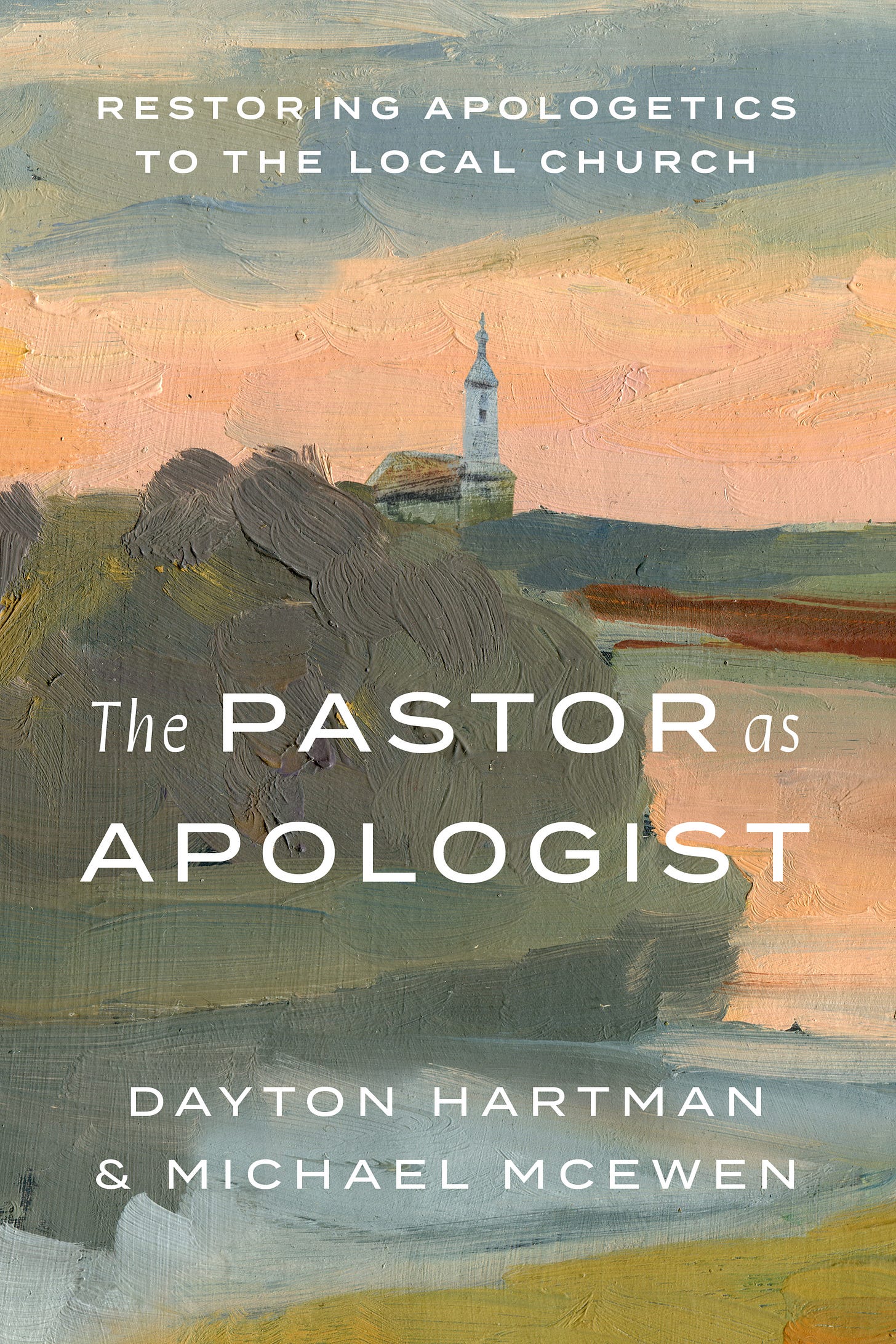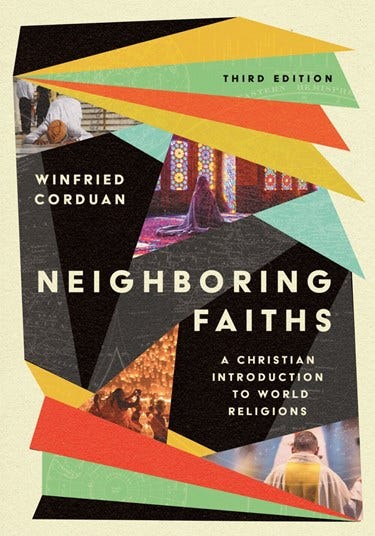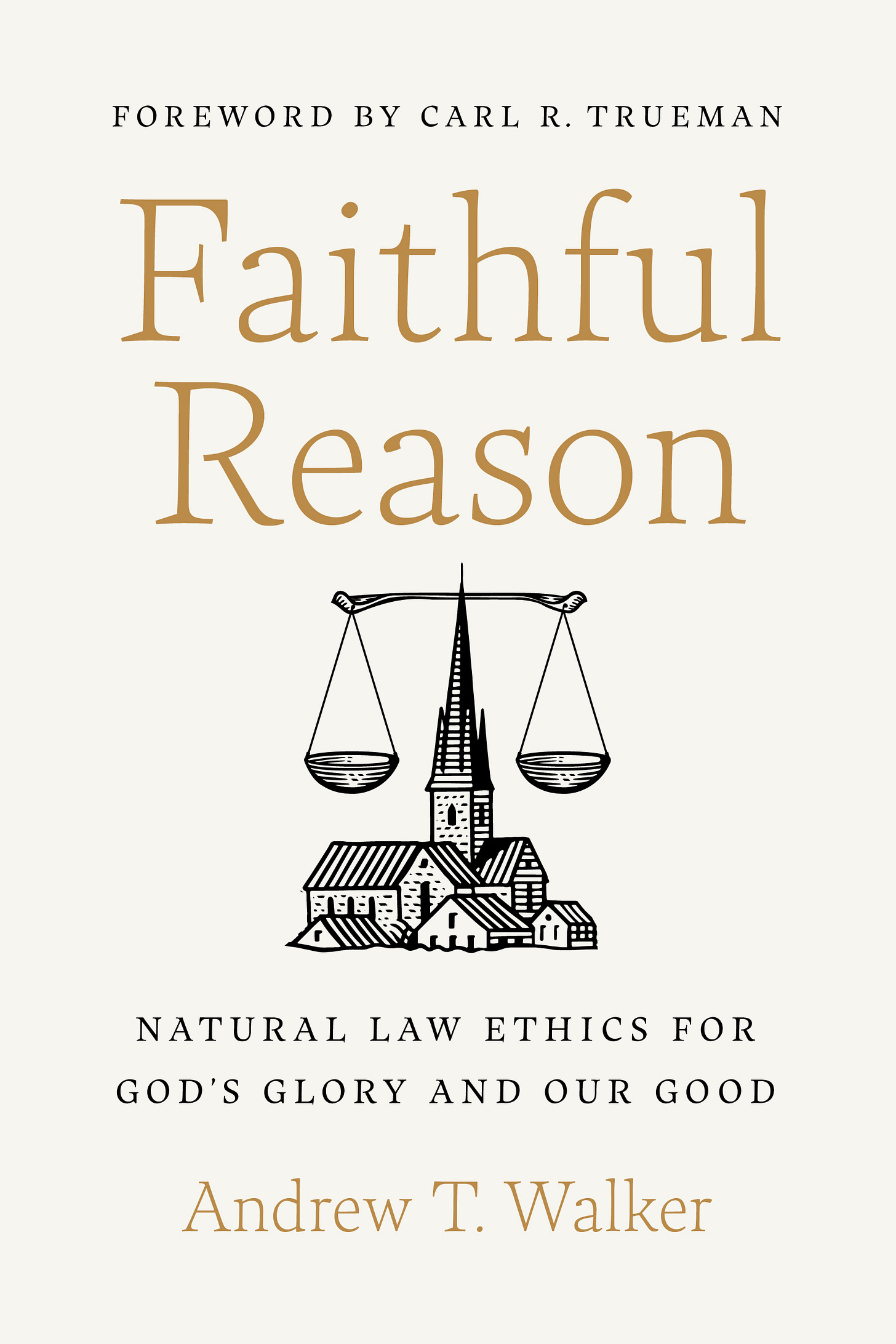Although it was not literally written by the original Apostles of Jesus Christ, The Apostles’ Creed has served as a foundational document and liturgical element in Christian churches since the fourth century. It represents the teachings of the Apostles even though they are not its authors. Its authors are unknown. The Apostles’ Creed’s purpose is not to replace the Bible, or to be the only creed for the church, or to reduce Christian truth to its statements. Rather, it summarizes biblical doctrine and is meant to be recited corporately by followers of Jesus. Its affirmations are necessarily part of Christian doctrine, and all three branches of Christianity affirm it (although not with the same interpretation of every aspect). There is spiritual power found in collectively confessing these truths with conviction on a regular basis and it is a good idea to memorize the Creed as well.
Few Americans believe the Apostles’ Creed today, and many outright oppose the God of the Bible and Christian doctrine. Opposition to Christianity is so strong that Aaron Renn, in his book Life in the Negative World, says that Christians must use new strategies to address the current setting, but without altering the biblical message itself. Renn advocates for a “counter-catechesis” to equip Christians to know what they ought not believe, given their Christian convictions in a hostile world. Thus, this essay, “A Counter Catechism.” There is, in fact, more to a formal catechism than the Apostles’ Creed, but many catechisms include it. We start here. After each statement of the Creed will follow what the Creed denies relative to the subject. The judgments are based on the law of noncontradiction: A is not non-A. Or, you cannot affirm anything about reality and its opposite as both being true in the same way and in the same respect.
The Apostles’ Creed and Some of What It Denies
I believe in God,
the Father Almighty,
Creator of Heaven and earth;
Since God is a personal and all-powerful being, who is the originator and designer of the universe, we deny that God is an impersonal force or principle, as taught in some Eastern religions and occultism. We also deny that God is a mother in the sense of an earth goddess. We deny that God is identified with the cosmos, as taught by pantheism. As Creator, God is transcendent in his self-existent being (Acts 17:15), and we deny that he is one with contingent creation. However, as omnipresent, God is immanent, and is closer to use than we are to ourselves (Augustine). But this doctrine does not compromise God’s transcendence. As Isaiah wrote.
For this is what the high and exalted One says—
he who lives forever, whose name is holy:
“I live in a high and holy place,
but also with the one who is contrite and lowly in spirit,
to revive the spirit of the lowly
and to revive the heart of the contrite. (Isaiah 57:15)
Since God is one God, we deny both polytheism (many finite gods) and dualism (one good god and one evil god). As God said to his people, “Hear, O Israel: The Lord our God, the Lord is one” (Deuteronomy 6:4). We further deny that there are many gods, but we worship one of them as supreme for us (henotheism). This is the teaching of Mormonism. As Isaiah proclaimed:
“You are my witnesses,” declares the Lord,
“and my servant whom I have chosen,
so that you may know and believe me
and understand that I am he.
Before me no god was formed,
nor will there be one after me. (Isaiah 43:10)
2. and [we believe] in Jesus Christ, His only Son, Our Lord,
Since Jesus Christ is God’s only Son and our Lord, we deny that any other supposed god or savior has attained his exalted status (Matthew 11:27; John 14:6; Act 4:12; 1 Timothy 2:5). We further deny any teaching that denies Jesus as God’s only Son and our Lord, whether explicitly (such as Islam and Baha’i Faith) or implicitly (all non-Christian religions). Jesus was not an avatar (as are Hindu saviors), a manifestation of God (as in Baha’i Faith), a mere prophet (as taught in Islam), a mere sage (in the tradition of Buddha or Lao Tze or Confucius), nor was he a deluded mere mortal (atheism and much of Judaism).
Who was conceived by the Holy Spirit,
born of the Virgin Mary,
Because Jesus was supernaturally conceived by the Holy Spirit (Isaiah 7:14; Matthew 1:18; Luke 1:26-35), we deny that Christianity can dispense with this doctrine and still be Christianity at all (theological liberalism). We further deny that other stories about supernatural occurrences at the time of birth of other religious figures (such as Buddha) have any theological parallel to the Gospel accounts of Jesus’ virginal conception, and we deny that they have any historical claim on reality.
[Christ] suffered under Pontius Pilate,
was crucified, died, and was buried.
He descended into Hell.
Because we believe that Jesus was a personal actor in space-time history, we deny that his death was merely symbolic. He suffered an unjust conviction and was crucified by the Roman authorities, who knew how to execute people effectively. We thus also deny the swoon theory that Jesus did not truly die on the cross, but only appeared to die and was taken down from the cross alive (as taught by Ahmadi Muslims and some older biblical critics). Jesus not only died but “descended into hell,” meaning that he continued to exist after his death to fulfill God’s purposes. This denies a humanistic account of Jesus as a mere mortal who simply died a martyr’s death and ceased to exist at his death.
The third day He arose again from the dead;
Since we affirm the historical resurrection of Jesus (the empty tomb and his physical appearances), we deny that the resurrection is merely a symbol of hope and not a space-time actuality. We further deny that Jesus’ resurrection was merely spiritual and not bodily, since Jesus was seen as physical, conversed with his disciples, and ate with them as well after his resurrection (Luke 24; 1 Corinthians 15:1-8).
He ascended into Heaven,
sitteth at the right hand of God, the Father Almighty;
Since Jesus physically ascended to heaven (Luke 24:50-52; Acts 1:9), we deny that the ascension was a mere symbol of spiritual transcendence or a model for what we can attain through developing a higher level of consciousness (New Age teaching). Since Jesus sits enthroned and empowered at the right hand of God the Father Almighty (Romans 8:34; Ephesians 1:20-23), we deny any other claimant to his throne. We, thus, affirm the co-equality of the Father and the Son (as two members of the Trinity) and deny that God has no Son (the teaching of Islam) or that Jesus is not the Messiah (Judaism).
[We believe that] from thence He shall come to judge the living and the dead.
Since Jesus will come again in a final judgment for the damned and redemption for the saved, we deny that death ends human existence (as taught by atheism). We also deny that people can be reincarnated from one lifetime to another (1 Corinthians 15; Hebrews 9:27). We also deny that the Second Coming is a collective event in which a critical mass of human beings attains Christ consciousness (New Age).[1]
I believe in the Holy Spirit,
Since the Holy Spirit is the third person of the Holy Trinity (Matthew 28:19; 2 Corinthians 13:14), we deny the truth of any non-trinitarian monotheism (such as Judaism, Islam, and Jehovah’s Witnesses). We further deny any teaching that the Holy Spirit is not a person, but merely God’s influence in the world (as in Jehovah’s Witnesses). (See Acts 5, where lying to the Holy Spirit is the same as lying to God.)
[I believe in] the holy catholic Church,
Since we believe in one universal church of those saved exclusively through the work of Jesus, we deny that there are many paths to salvation. We also deny that every church that claims to be Christian is in fact part of the universal church. For example, a church that denies the Apostles’ Creed cannot be part of the universal church.[2]
[I believe in] the communion of saints,
Since all those redeemed by Christ are part of one indissoluble body, we deny soul sleep, the idea that people cease to exist between their physical death and their resurrection. We also deny that the Body of Christ is limited to those alive on earth at any given time. But we also deny that this doctrine warrants praying to the dead or receiving messages from them (necromancy). (See Deuteronomy 18:11; Isaiah 8:19.)
[I believe in] the forgiveness of sins,
Since God forgives sins through Christ (Ephesians 2:1-8), we deny the teachings of reincarnation and karma whereby we attain salvation over several lifetimes by effort (Hebrews 9:27). We further deny the Islamic teaching that we can earn salvation through accruing enough good deeds to merit salvation from Allah (Titus 3:5). We also deny any relativism that teaches that there is no such thing as sin, since morality is relative to the individual.
[I believe in] the resurrection of the body,
and the life everlasting. Amen.
Because all people will spend eternity in one of two places (Daniel 12:2; Matthew 25:46; John 5:24-30), we deny annihilationism (that the unredeemed simply cease to exist) as well as reincarnation, which is the teaching that one soul can inhabit many bodies, both human and nonhuman (Hebrews 9:27). While Islam teaches that there will be a resurrection, we deny Islam’s understanding of the nature of salvation and the nature of the life everlasting (a paradise made for men’s pleasures). Moreover, for Islam, paradise does not include Allah’s presence, since he is ever transcendent. The biblical paradise is paradise because of the presence of God himself:
Then I saw “a new heaven and a new earth,” for the first heaven and the first earth had passed away, and there was no longer any sea. I saw the Holy City, the new Jerusalem, coming down out of heaven from God, prepared as a bride beautifully dressed for her husband. And I heard a loud voice from the throne saying, “Look! God’s dwelling place is now among the people, and he will dwell with them. They will be his people, and God himself will be with them and be their God. ‘He will wipe every tear from their eyes. There will be no more death’ or mourning or crying or pain, for the old order of things has passed away.” (Revelation 21:1-4)
Counter-Catechism and Christian Confession
The Apostle Paul writes that in Christ is the ultimate affirmation of reality.
But as surely as God is faithful, our message to you is not “Yes” and “No.” For the Son of God, Jesus Christ, who was preached among you by us—by me and Silas and Timothy—was not “Yes” and “No,” but in him it has always been “Yes.” For no matter how many promises God has made, they are “Yes” in Christ. And so through him the “Amen” is spoken by us to the glory of God (2 Corinthians 2:18-20).
However, the grand “Yes!” of Jesus Christ entails that whatever contradicts sound doctrine, which is rooted in the reality of Christ, must be denied. Paul denied false teaching through his ministry and in his letters (see Galatians 1, for example). We, therefore, need a counter-catechism, a strong knowledge of what is false in relation to what is true. This essay is neither an exhaustive statement of Christian doctrine (it only addresses the Apostles’ Creed) nor an exhaustive statement of all that the Apostles’ Creed denies by necessary implication. It is offered, rather, as primer on spiritual discernment and theological testing.
Notes
[1] I was asked to respond to this idea while on a Canadian television show in 1986.
[2] The only qualification is that different churches and theologians may understand “he descended into hell” in different ways, but orthodox churches will not deny this truth outright.
— Douglas Groothuis is University Research Professor of Apologetics and Christian Worldview at Cornerstone University and is the author of twenty books, including, most recently, Beyond the Wager: The Christian Brilliance of Blaise Pascal (InterVarsity-Academic, 2024) and Christian Apologetics, 2nd ed. (InterVarsity-Academic, 2022).
[sponsored]
Learn more and register here: https://womeninapologetics.com/2024wiaconf.
The Pastor as Apologist: Restoring Apologetics to the Local Church
In The Pastor as Apologist, Dayton Hartman and Michael McEwen attempt to recapture the pastoral role of apologetics. By ably speaking to their congregations about apologetics issues, pastors can be the first line of defense against doubt and attacks on the faith. Interweaving historical, theological, and philosophical attention to the conversation, Hartman and McEwen argue that every pastor is an apologist who then invites the church to embody its apologetic identity.
“Among the many responsibilities of a pastor, the discipline to give a reason for our Christian hope remains central to our preaching, shepherding, and counseling. This, as Hartman and McEwen suggest, is pastoral apologetics. For a discipline that sometimes garners the reputation of mere intellectual defensiveness, Hartman and McEwen offer a winsome and humble approach for pastors that is biblically grounded, historically informed, anchored in the confidence of Christ’s resurrection, and highly practical. As a seminary professor and pastor, I’m thrilled to see such a helpful resource to remind and equip pastors in the important task of defending the faith.”
—Benjamin Quinn, associate professor of theology and history of ideas and associate director of the Center for Faith and Culture, Southeastern Baptist Theological Seminary
See our recent excerpt from The Pastor as Apologist here.
Find The Pastor as Apologist at B&H Academic, Amazon, Barnes & Noble, Christianbook.com, and other booksellers.
Neighboring Faiths
A Christian Introduction to World Religions (3rd ed.)
World religions are not merely abstract sets of doctrinal beliefs. They are embodied worldviews and practices lived out by real people around us. Encounters with these neighboring faiths often challenge our own beliefs and traditions, making us think more deeply about our faith commitments.
For all who want to understand the religious faiths of their neighbors, Winfried Corduan offers an introduction to the religions of the world. This classic text covers major as well as lesser known religions, including Judaism, Islam, Zoroastrianism, African traditional religions, Native American religion, Hinduism, Buddhism, Jainism, Sikhism, Baha'i, Chinese popular religion, and Shinto and Japanese religions.
Neighboring Faiths emphasizes not just formal religious teachings but also how each religion is practiced in daily life. Dozens of photographs, charts, and maps help illustrate how the faiths have developed and how they're lived out today. Corduan offers specific insights into what to expect from encounters with adherents of each religion and suggestions for how Christians can engage them in constructive dialogue. Each chapter offers lists of key points, ideas for term papers, and recommended resources to help students, instructors, and small groups go deeper.
Neighboring Faiths is an indispensable guide for Christians seeking an informed, empathetic perspective on different religions and the people who practice them.
“Neighboring Faiths is the best Christian introduction to the world’s religions available today. And given that the Western world is now a truly global society with all the religions present, it is imperative that Christians have a basic knowledge of the religions of the world. While Winfried Corduan is deeply committed to the unique truth of historic Christianity and evaluates the different religions from a Christian perspective, he nevertheless treats each religion with fairness, respect, and empathy. There is no better book to read and study on this critical topic than Corduan’s work. Every school, church, and personal library should have this book.”
— Kenneth Samples, senior scholar with Reasons to Believe
See our recent excerpt from Neighboring Faiths here.
Find Neighboring Faiths at InterVarsity Press, Amazon, Barnes & Noble, Christianbook.com, and other booksellers.
Faithful Reason
Natural Law Ethics for God’s Glory and Our Good
In Faithful Reason: Natural Law Ethics for God’s Glory and Our Good, Andrew T. Walker argues that developing a comprehensive Christian ethic is not simply a matter of appealing to biblical authority, but also of understanding the way that God has ordered creation and our place within it. In this work, he provides a comprehensive and accessible introduction to natural law ethics from an evangelical perspective.
In the first section of Faithful Reason, Walker develops a robust framework of natural law ethics, guided by biblical and theological evidence. In the second section, this framework is applied to various contemporary ethical issues within dignity ethics, embodied ethics, personal ethics, social ethics, and political ethics. Through a natural law framework, readers are empowered to reason through the particulars of any situation and develop a godly ethical response.
“If there is a renaissance of evangelical appreciation and practice of the natural law, grounded in biblical truths, and thoughtfully applied to contemporary challenges, Andrew Walker’s work on these matters will be one of the reasons why. Faithful Reason is a comprehensive book that delves into the substance of natural law ethics with an eye toward accessibility and application. Newcomers to natural law thinking, veterans, and even skeptics will benefit from grappling with the themes herein.”
—Micah Watson, Paul Henry Chair in Christianity and Politics, Calvin University
See our recent excerpt from Faithful Reason here.
Find Faithful Reason at Amazon, Barnes & Noble, Christianbook.com, and other booksellers.
Advertise in The Worldview Bulletin
Do you have a ministry, book, course, conference, or product you’d like to promote to 7,516 Worldview Bulletin readers? Click here to learn how. We’re currently booking for August-September.
Subscribe to The Worldview Bulletin
The Worldview Bulletin thrives when readers subscribe. Sign up here to access all of our resources and support our work of commending and defending the Christian worldview. You can also give a one-time donation here at our secure giving site.
“I find The Worldview Bulletin very stimulating and would encourage all thinking Christians to read it.”
— John Lennox, emeritus professor of mathematics, University of Oxford, emeritus fellow in mathematics and philosophy of science, Green Templeton College, author of Cosmic Chemistry: Do God and Science Mix? (Lion)
“It has made such a difference to me to realise that my Christian faith is intellectually respectable.” — Duncan Cooke, M.D.
“The Worldview Bulletin shines a brilliant light of truth in a darkening world. These authors, who are experts in their field, consistently provide logical, rational, moral and most importantly biblical answers in response to the deceitful narratives we are bombarded with daily. I have found it a great source of enlightenment, comfort, and inspiration.”
— B. Shadbolt, New South Wales, Australia








"Teach your children well." Christians have taught their children biblical truths using a variety of catechisms for centuries. Concerning the commands He gave to Moses for Israel, God told Jewish parents to "teach them diligently to your children, and shall talk of them when you sit in your house, when you walk by the way, when you lie down, and when you rise up." Good advice for Christian parents as well. Though we are no longer "under the law," we need to make the teachings of Christ and His apostles an integral and 'natural' part of our children's lives. It's not about what our children learn in Sunday School or in youth group once a week. That does not prepare them for the world they live in or the non-Christian worldviews and ideas they will face as they grow up. It's about "hiding" God's Word in their hearts - "rightly divided." The idea of a 'counter catechism' is a good way of doing that. Our children need to know 'why' they believe 'what' they believe and how to recognize 'error' when they see or hear it. Thank you for a wonderful and thought-provoking article.
This is an excellent article. I very much enjoyed reading this.